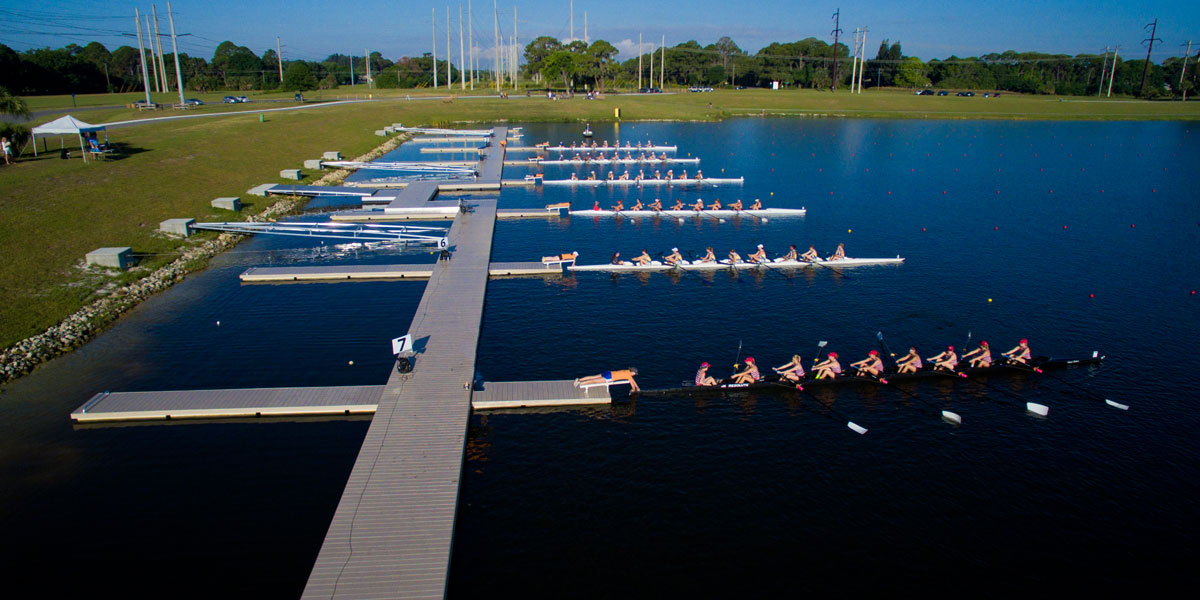
The Ultimate Guide to Choosing Floating Docks for Rowing Programs: Insights for Coaches
Unlike traditional wood and fixed docks, floating docks are platforms set on water bodies that rise and fall with the water levels. For professional rowing programs and coaches, these stable terraces offer all the support needed to enter and exit their shells. They are the launching points for rigorous training sessions and enhance the safety and efficiency of rowing operations.
Coaches have a crucial role to play in selecting the best docks since they are responsible for creating an environment that fosters safety and peak performance. Choosing a great dock can significantly influence an athlete’s training and competitive edge. Below is the ultimate guide to choosing floating docks for elite rowing programs and providing rowing coach insights to them.
Importance of Floating Docks in Rowing Programs
Floating docks are an essential part of the entire rowing experience. They help athletes in the following ways:
- Allowing a safe and swift transition from boat to land
- Offering easy access to the water to rowers of all skill levels
- Enhancing turnovers between events and practice sessions, enhancing the overall efficiency of the rowing programs
Key Considerations for Coaches
Below are the top rowing coach insights to consider when choosing floating docks for elite rowing programs.
Dock Materials and Construction
Plastic, aluminum, and PVC Decking are the three common materials used to make floating docks.
- Plastic. High-quality polyethylene is the most common form of plastic used to construct floating docks. This material can withstand severe weather conditions and is resistant to warp, dent, or rust.
- Aluminum. This material is mainly used as a frame and paired with another docking material, but it can also be used on its own. You don’t have to worry about rust, rotting, or dents since aluminum is scratch- and water-resistant. The material is also lightweight and extremely durable.
- PVC Decking. Capped PVC (Polyvinyl Chloride) plastic with the texture of real wood. PVC decking is extremely low maintenance, and water and weather-resistant. PVC Decking performs well in both saltwater and freshwater.
Design and Configuration
Your floating dock should meet your training needs and match the waterfront where you will install it. For instance, floating docks for elite rowing programs will need to accommodate several shells and potentially a safety boat, whereas leisure rowers might only have one or two shells.
Accessibility and Safety Features
A floating dock needs to be safe and stable for people to walk on. It should have ample navigation space, with additional security elements like railings and bumpers. It should also stay cool and burn-free, even during the summer when platforms get scorching hot. Prioritizing safety is essential for barefoot athletes, children, and dogs.
Maintenance and Longevity
Materials like aluminum and plastic require minimal maintenance. A floating dock made from non-porous materials like aluminum and plastic can be cleaned up with a pressure washer, soap, and water. Porous materials like wood require special stains and oils to protect the material from cracking, splitting, and rotting. Keep in mind the extra costs and time it takes to maintain the longevity of floating docks for elite rowing programs.
Budget Considerations
Floating docks are an investment for the safety and performance of rowing teams. While the price range for floating docks can vary dramatically, the long-term cost of floating docks is significantly less than traditional, fixed wood docks and the time and cost it takes to maintain them. To ensure your floating dock is within budget, explore options like institutional or program funding, payment installments, or sponsorships. One thing to never sacrifice is the safety of your team, which is why floating docks are the preferred choice for elite rowing programs.
The Lowdown
Floating docks for elite programs go beyond just offering support to athletes to being essential elements of the entire training process. This is why it is essential to consider several key rowing coach insights to install a dependable, safe, and durable dock. AccuDock has been providing professional rowing docks to some of the world’s most prestigious programs. Contact us today to plan your new floating dock for your club, regatta, or championship.
AccuDock is a global leader in the design and manufacturing of Floating Docks
CALL 954.785.7557 OR EMAIL [email protected] FOR MORE INFORMATION









